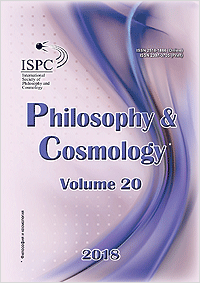Multiverse Assumptions and Philosophy
Multiverse Assumptions and Philosophy
Author(s): James R. JohnsonSubject(s): Metaphysics, Philosophy of Science
Published by: Международное философско-космологическое общество
Keywords: multiverse; metaphysics; philosophy; inflation; string theory; cyclic universe; Loop Quantum Gravity; simulated universe; ultimate universe; fine tuning; infinity;
Summary/Abstract: Multiverses are predictions based on theories. Focusing on each theory’s assumptions is key to evaluating a proposed multiverse. Although accepted theories of particle physics and cosmology contain non-intuitive features, multiverse theories entertain a host of “strange” assumptions classified as metaphysical (outside objective experience, concerned with fundamental nature of reality, ideas that cannot be proven right or wrong) topics such as: infinity, duplicate yous, hypothetical fields, more than three space dimensions, Hilbert space, advanced civilizations, and reality established by mathematical relationships. It is easy to confuse multiverse proposals because many divergent models exist. This overview defines the characteristics of eleven popular multiverse proposals. The characteristics compared are: initial conditions, values of constants, laws of nature, number of space dimensions, number of universes, and fine tuning explanations. Future scientific experiments may validate selected assumptions; but until they do, proposals by philosophers may be as valid as theoretical scientific theories.
Journal: Philosophy and Cosmology
- Issue Year: 20/2018
- Issue No: 20
- Page Range: 8-17
- Page Count: 10
- Language: English

